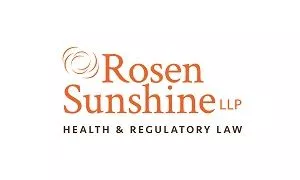- with readers working within the Healthcare and Pharmaceuticals & BioTech industries
The Royal College of Dental Surgeons of Ontario ("RCDSO") has published a new infographic explaining a dentist's professional obligations when posting on social media, titled "Pause. Think. Post." This guidance is meant to complement and expand upon the RCDSO's existing advisory on "Professional Use of Social Media."
The infographic identifies five main areas dentists should keep in mind when posting on social media:
- Avoid Discriminatory Conduct: Dentists must not post disparaging remarks about individuals or other content that is likely to seem unprofessional, unethical, or offensive. Dentists must be mindful of their language and avoid profanity, slurs, glib statements or sarcasm, as these could be considered disrespectful and inflammatory.
- Maintain Boundaries: Dentists must maintain professional boundaries with patients in virtual spaces just as they must do in real life. The RCDSO suggests that it may be best for dentists to politely refuse "friend" or "follower" requests from patients. Though not stated in the infographic, this requirement would presumably only apply to the dentist's personal social media account, and not to a social media account for a dental clinic. However, a dentist's interactions with patients would still need to respect professional boundaries, regardless of whether such interactions take place through the dentist's personal social media account or a dental clinic's social media account.
- Discussing Dentistry: When discussing dentistry online, dentists must only share accurate content from reliable sources, and must only comment on topics within the dentist's area of expertise. Dentists must also ensure that content about dentistry meets the RCDSO's standards regarding treatment and patient care.
- Protect Privacy: Dentists must not post patient information (including pictures and videos) without the patient's explicit consent. Communications with patients about treatment and care must be from a dedicated professional email or web link, and must comply with the Information and Privacy Commissioner's requirements for sending personal health information electronically, which includes using encryption whenever it is reasonably practicable to do so.
- Online Marketing and Advertising: Dentists must ensure that all advertising complies with the RCDSO's practice advisory on professional advertising. Dentists should take note that the RCDSO takes a very wide interpretation of what constitutes an "advertisement." Any post from an account that identifies the account holder as a dentist is likely to be considered an advertisement by the RCDSO. Dentists must also ensure that the way they identify themselves online complies with the RCSDO's requirements on the use of qualification, titles, and designations.
This social media guidance highlights that a dentist's conduct in virtual spaces remains subject to all the same professional obligations that would apply to analogous circumstances in the real world. Dentists can face regulatory consequences for inappropriate online activity, regardless of whether such activity is professional or personal in nature.
The content of this article is intended to provide a general guide to the subject matter. Specialist advice should be sought about your specific circumstances.


